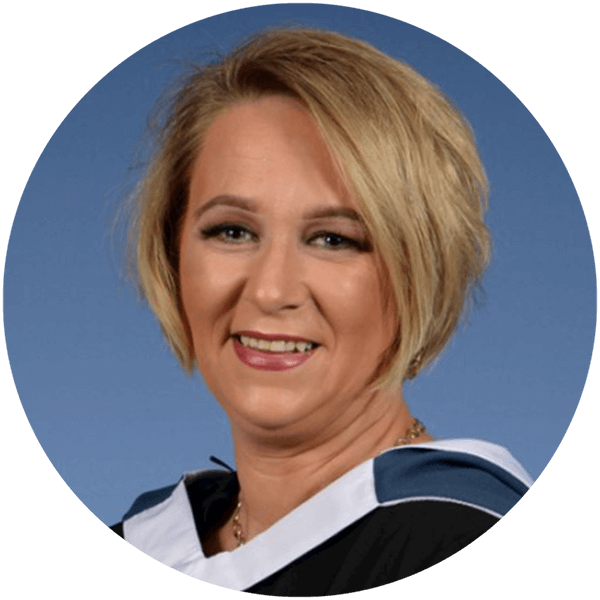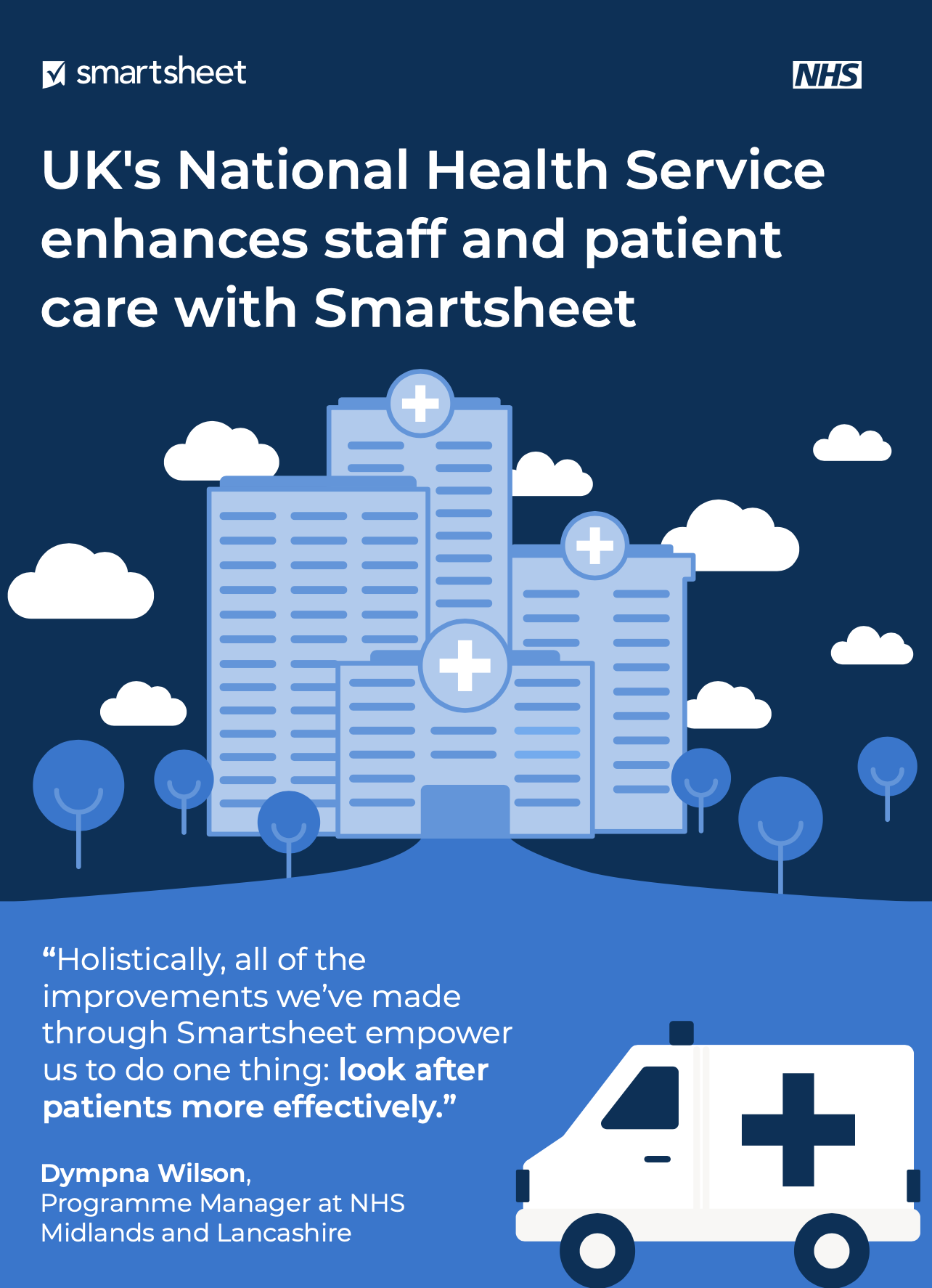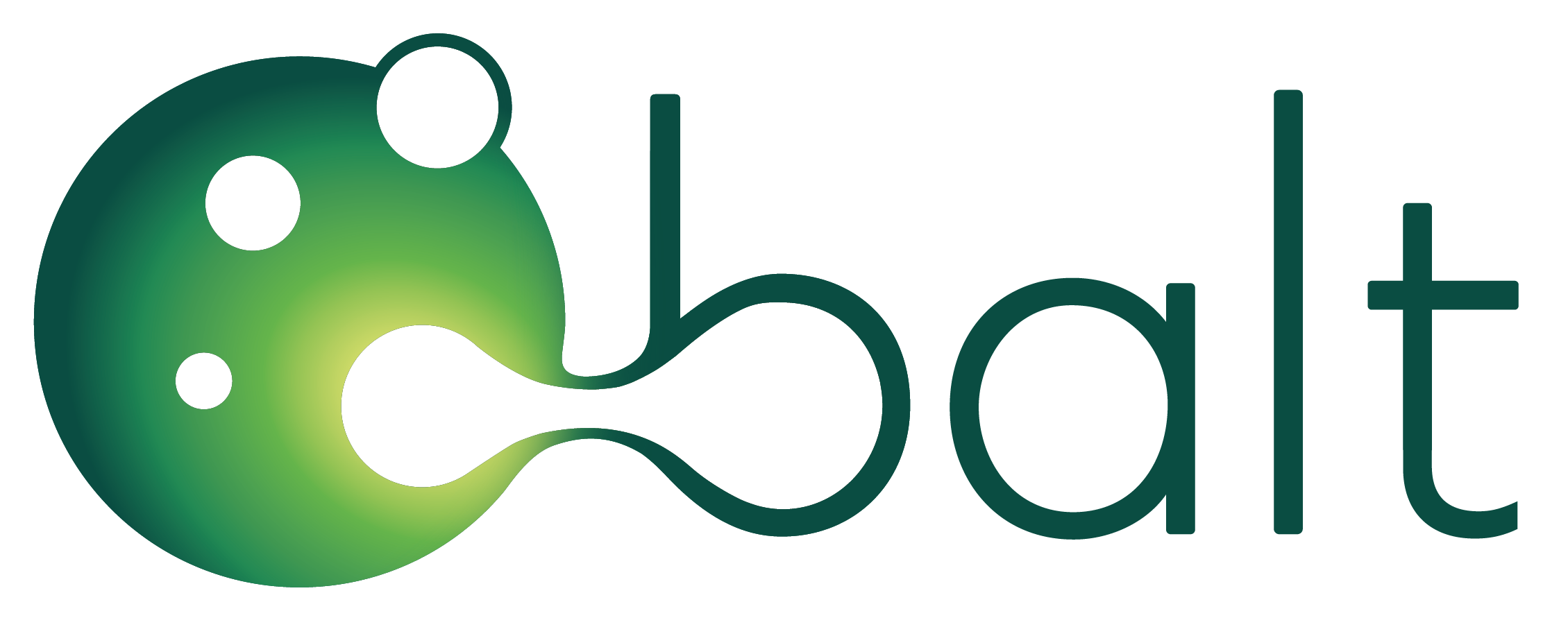Smartsheet helps NHS Tayside respond to COVID-19 pandemic by tracking protective equipment supplies and fitting
NHS Tayside uses Smartsheet to track inventory of 28 types of PPE as well as the types of masks that fit individual workers and the techs who are qualified to adjust fit. Daily supply monitoring and automated alerts help decision-makers know which supplies are running low and prevents overstocking of the wrong items.

"We are delighted with SBP’s Face Fit Test Register, which was delivered in very short order and which now provides us with the register management process, top level statistics, and visibility via reports and dashboards that we needed to progress this important work at this challenging time. Thanks to David Bower and the Smarter Business Processes Team for a well-designed workflow solution and appropriate visibility at all levels."
Smartsheet Champion and Personal Assistant to the Head of Health and Safety, NHS Tayside
Faced with the spreading COVID-19 pandemic, NHS Tayside in Scotland needed to quickly build out its Smartsheet platform to track supplies of personal protective equipment (PPE). In addition, the health board had to monitor the training status of face fit techs (FFTs) responsible for ensuring each health care worker has an accurately fitted mask. Working with Smarter Business Processes (SBP), a Smartsheet Gold Partner, NHS Tayside enhanced and expanded an existing tracking solution in less than two weeks to ensure that health care staff throughout the region were capturing and reporting the government-required data needed to maintain PPE supply levels and FFT training status to cope with the global health crisis.
“We are delighted with SBP’s Face Fit Test Register, which was delivered in very short order and which now provides us with the register management process, top level statistics, and visibility via reports and dashboards that we needed to progress this important work at this challenging time,” says Debbie Priest, Smartsheet champion and personal assistant to the head of health and safety at NHS Tayside. “Thanks to David Bower and the Smarter Business Processes Team for a well-designed workflow solution and appropriate visibility at all levels.”
NHS Tayside is one of 14 geographically defined National Health Service health boards in Scotland, with hospitals, infirmaries and other facilities employing more than 30,000 staff across Angus, Dundee, and Perth and Kinross. When Priest joined the NHS Tayside team, she worked with SBP to lead an effort to develop a set of targeted administrative data solutions using Smartsheet. She and her team decided to expand several solutions, including the Face Fit Test Register — which, luckily, meant that the work was already underway when the spread of COVID-19 made PPE fitting more important than ever.
“A plain cloth cover will just stop big particles, but if you really want to stop aerosol contamination, you have to have something that fits very closely to the face,” says David Bower, Smartsheet and AppSheet consultant at Smarter Business Processes. “Getting the masks to physically fit is quite a skilled process, because there are so many different face shapes and also different types of masks. Each face fit tester has to have a renewal training every two or three years, and there’s a legal requirement to maintain that information accurately.”
A solution to help workers get the best-fitting masks
Priest and Bower collaborated on a Smartsheet solution that tracks the training status of face fit techs, with color-coding to signal which techs are overdue for retraining, which are due for training within 30 days, and which are due for retraining within 90 days. The sheet also captures which types of mask have been fitted to particular healthcare workers — and, crucially, which styles do not fit individuals, saving time and money by allowing supply managers to avoid overstocking expensive masks that their teams can’t use.
NHS Tayside also uses Smartsheet to monitor supply levels for 28 different types of PPE, grouping them by categories such as face masks, shields, disinfectants, and eye protection to make it easier to graph and visualize supply figures. Each day staffers record the current PPE inventory on each ward, as well as items received and daily usage levels. More than 4,500 specific data points are collected daily. The neighboring NHS Highland board has also adopted the solutions.
Flexible reporting to surface the information administrators need
Dashboards display previous-day data at the ward, facility, or regional level as well as by category, and enable administrators to track seven-day usage trends in order to plan for upcoming weeks. Automatic color-coding flags when stock levels get too low, so supply managers can place orders promptly to keep from running out.
“The NHS Highland facilities all have different supply chains, so they’re buying different products and different units,” Bower says. “One ward might have 10 boxes of gloves that have 50 gloves in the box, while another might have five boxes that each hold 200 gloves. Highland is more interested in tracking status, so a ward will report that it’s green because there’s enough supply, or red, meaning they need more. The Tayside system is bigger and more complex, and they want specific numbers. Each health board has the flexibility to interpret it in the way that helps them maintain that supply.”
The clear value of the Face Fit Register is inspiring teams at NHS Tayside to create additional solutions to solve other challenges. Gwen Rymill, communications director at Smarter Business Processes, notes that Smartsheet has not only helped non-frontline staff members remain productive and connected during the pandemic lockdown period, it’s kept the technology to create solutions for unforeseen challenges right at their fingertips. The secure online platform is accessible from virtually anywhere, so administrators can do their work without traveling to specific sites and coming into contact with others.
“I do think if there is anything good to come out of this crisis, it’s that it has opened the minds of many people to the fact that remote working works, and you just have to have those tools in place,” Rymill says. “Those that have been resisting change have just had to come up to speed and start working with the right tools.”











